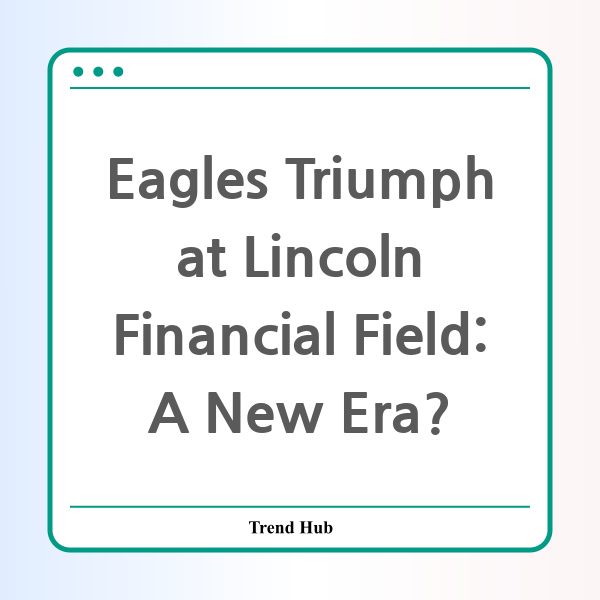* This website participates in the Amazon Affiliate Program and earns from qualifying purchases.

The Philadelphia Eagles have once again proven their mettle, clinching the Super Bowl title with an impressive 40-22 victory over the Kansas City Chiefs. This triumph not only marks a significant chapter in the Eagles’ history but has also stirred excitement among fans and discussions about the future of Lincoln Financial Field.
As the city of Philadelphia erupted in celebration following the Eagles’ win, fans poured into the streets, showcasing their unwavering support. The carnival-like atmosphere lasted through the night, highlighted by joyful gatherings at notable city locations. However, like any large celebration, there were moments of unrest, including some fans carrying a toppled light pole and igniting items that resembled towels. Despite these incidents, the overall vibe was one of jubilation and pride, culminating in an official announcement of a Super Bowl parade scheduled for February 14, 2025.
Throughout the Eagles’ long-standing history at Lincoln Financial Field, which opened in 2003, the venue has seen countless memorable moments. Yet, as the team looks towards the future, discussions are brewing regarding the potential construction of a new indoor stadium. With the current lease set to expire in 2032, the Eagles’ leadership, led by billionaire owner Jeffrey Lurie, is weighing their options.
Lincoln Financial Field has served as the home turf for the Eagles for two decades, making it one of the older venues in the NFL. Despite its historical significance, the possibility of a modern indoor stadium poses interesting prospects:
- Enhanced Fan Experience: A new indoor stadium would provide fans with a state-of-the-art experience, potentially featuring luxury seating, upgraded facilities, and improved accessibility.
- Weather-Proof Events: An indoor venue would allow for year-round events, minimizing weather-related disruptions, a crucial aspect in Philadelphia's variable climate.
- Economic Impact: New stadium construction could lead to significant economic benefits for the city through job creation and increased tourism.
As the Eagles bask in the glory of their Super Bowl victory, the financial trajectory of Lurie’s ownership is worth noting. Initially investing $185 million in 1994, the Eagles now boast a valuation of approximately $6.6 billion—an astounding 35-fold increase. This success adds to the intrigue surrounding the franchise and its future developments.
Moreover, with speculation surrounding potential ownership changes in other sports franchises, including the NBA's Boston Celtics, Lurie has publicly stated a preference to focus on the Eagles. Still, the possibility of another franchise acquisition has not been completely ruled out.
This transition could lead to a redefining of the Eagles' identity as they step into a new era, potentially underpinned by a modern facility designed to elevate the experience for both players and fans alike. The looming question for devoted Eagles fans is clear: Will Lincoln Financial Field remain the proud home of their team, or will the Eagles embrace a new horizon in sports facilities?
Stay tuned as we witness not just the celebration of victory but the unfolding narrative of the Philadelphia Eagles, as their legacy continues to evolve.
* This website participates in the Amazon Affiliate Program and earns from qualifying purchases.